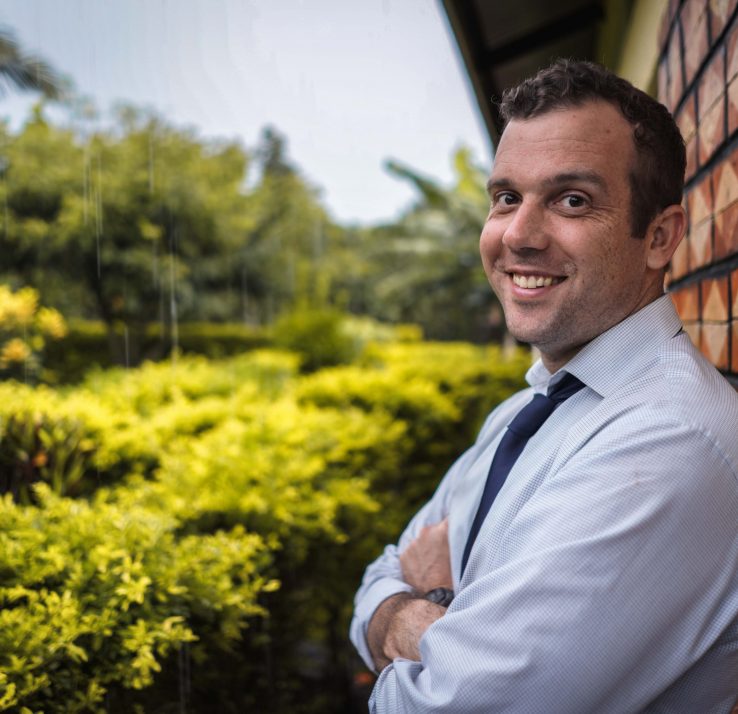
Ross M. Boyce, MD
About
Dr. Boyce’s research focuses on the spatial epidemiology of malaria and vector-borne diseases in East Africa, particularly in rural, underserved communities. He is the principal investigator on studies funded by the National Institutes of Allergy and Infectious Diseases, Doris Duke Charitable Foundation, and Bill & Melinda Gates Foundation, among others. At present, his team is focused on novel methods of malaria prevention and vector control.
More locally, Dr. Boyce leads a multi-disciplinary research collaboration, the Vector-Borne Disease Epidemiology, Ecology, and Response (VEER) Hub, focused on issues of tick- and mosquito-borne diseases endemic to North Carolina.
Ross Boyce in the Gillings News
Honors and Awards
Doris Duke Charitable Foundation Clinician Scientist Development Award
2021
Best Clinical Article of the Year
2018, American Journal of Tropical Medicine & Hygiene
Elsevier Clinical Research Award
2015, ASTMH Annual Meeting
Outstanding Resident Research Award
2015, MGH Internal Medicine
Okeke Prize & William Simpson Prize
2011, London School of Hygiene & Tropical Medicine
Alpha Omega Alpha Honor Society
2010, UNC School of Medicine
Research Activities
- Malaria
- Dengue
- Rickettsia
- Ehrlichia
- Lyme disease
Key Publications
Dihydroartemisinin-piperaquine chemoprevention and malaria incidence after severe flooding: evaluation of a pragmatic intervention in rural Uganda. Boyce RM, Hollingsworth BD, Baguma E, Xu, E, Goel V, Brown-Marusiak A, Muhindo R, Reyes R, Ntaro M, Siedner MJ, Staedke SG, Juliano JJ, Mulogo EM. (2021). Clin Infect Dis.
Comparison of capillary versus venous blood for the diagnosis of Plasmodium falciparum malaria using rapid diagnostic tests. Gorret AM, Muhindo R, Baguma E, Ntaro M, Mulogo EM, Deutsch-Feldman M, Juliano JJ, Nyehangane D, Boyce RM. (2021). J Infect Dis, 224(1), 109-113.
SARS-CoV-2 Testing in North Carolina: Racial, ethnic, and geographic disparities. . Brandt, K, Goel V, Keeler C, Bell GJ, Aiello AE, Corbie-Smith G, Wilson E, Fleischauer A, Emch M, Boyce RM. (2021). Health Place, 69(192576).
Anemia was an uncommon complication of severe malaria in a high-transmission, rural area of Western Uganda. . Boyce, R, Reyes, R, Keeler, C, Matte, M, Ntaro, M, Mulogo, E, Siedner, M. (2018). Am J Trop Med Hyg, 98(3), 683-691.
Severe flooding and malaria transmission in a highland area of Uganda: Implications for disease control in an era of global climate change. Boyce, R, Reyes, R, Mulogo, E, Ntaro, M, Matte, Metlay J, Band, L, Siedner, M. (2016). J Infect Dis., 214(9), 1403-1410.
